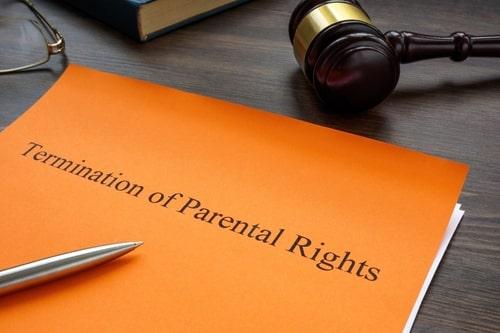Recent Blog Posts
Navigating Divorce in Texas: What Will Happen to Your Business?
 As a community property state, marital property is divided evenly in a Texas divorce. Does the same rule apply to your business? Our attorneys answer this question by exploring the implications of the community property rule. We also share strategies you can adopt during property division to reach a positive and profitable outcome after a divorce.
As a community property state, marital property is divided evenly in a Texas divorce. Does the same rule apply to your business? Our attorneys answer this question by exploring the implications of the community property rule. We also share strategies you can adopt during property division to reach a positive and profitable outcome after a divorce.
Understanding the Implications of Texas as a Community State
Texas divorce laws characterize assets and debts accumulated during marriage as marital property. According to the community property rule, these assets and financial obligations are split equally between divorcing spouses.
Your business does fall into this category if you started the venture after marriage. Or if your spouse became a stakeholder, investor, or business partner in the company after marriage.
Unless you signed a premarital or postnuptial agreement to characterize your business as separate property, it is typically considered part of the community property.
Modifying a Divorce Decree in Texas
 When it comes to divorce decrees, situations may arise where modifications are necessary to ensure that the agreement aligns with the evolving needs of the parties involved. In this article, we will explore the process of modifying a divorce decree in Texas, highlighting the importance of seeking professional legal guidance to navigate this complex procedure successfully.
When it comes to divorce decrees, situations may arise where modifications are necessary to ensure that the agreement aligns with the evolving needs of the parties involved. In this article, we will explore the process of modifying a divorce decree in Texas, highlighting the importance of seeking professional legal guidance to navigate this complex procedure successfully.
Modifying a Divorce Decree in Texas
Life is full of unexpected twists and turns, and sometimes the terms outlined in a divorce decree no longer reflect the current reality of the individuals involved. Whether it's a significant change in income, relocation, or alterations in the needs of children, it is crucial to recognize when modifications are warranted.
Common Reasons for Modification
Modifications to divorce decrees in Texas typically revolve around key aspects such as child custody, visitation rights, child support, spousal support, and property division. Significant life events, such as job loss, a substantial increase in income, or medical issues, can necessitate changes to these crucial elements.
Child Custody and Conservatorship in Texas - What You Should Know
 Child custody or visitation pertains to the legal process determining how much time a child spends monthly with each parent after a divorce. Texas child custody laws can be complex and stressful to navigate. The final terms are determined by a judge, which can differ on a case-by-case basis.
Child custody or visitation pertains to the legal process determining how much time a child spends monthly with each parent after a divorce. Texas child custody laws can be complex and stressful to navigate. The final terms are determined by a judge, which can differ on a case-by-case basis.
How Texas Describes Child Custody Issues
Conservatorship refers to the duties and rights of the parents when it comes to making important decisions for their children. This includes their schooling, medical decisions, religious decisions, etc. In this case, the parents can decide to allow one parent to make all the decisions (Sole Managing Conservatorship) or allow both parents to (Joint Managing Conservatorship). When the court is deciding the rights and duties of a parent, it takes several factors into account.
Uncovering Hidden Assets in Divorce: How Our Attorneys Can Help
 According to Texas law, divorcing couples must disclose all relevant information regarding their assets. This can include property, financial accounts, retirement assets, and more. If you suspect your spouse is dishonest in disclosing their assets, contact a skilled divorce attorney in Collin County.
According to Texas law, divorcing couples must disclose all relevant information regarding their assets. This can include property, financial accounts, retirement assets, and more. If you suspect your spouse is dishonest in disclosing their assets, contact a skilled divorce attorney in Collin County.
Signs Individuals Are Trying to Hide Assets
Here are some ways an individual might use to conceal marital assets:
-
Transferring property or money out of joint possession or a joint account and into the possession of a relative or friend
-
Opening overseas accounts or making foreign investments
-
Suddenly spending excessive sums of money on unnecessary purchases or activities
-
Destroying or altering financial records
-
Funneling money into a business entity under the guise of business expenses or additional payroll
Child Conservatorship Guidelines in Texas: What You Need to Know
 Child conservatorship guidelines in Texas refer to the legal framework that governs the rights and responsibilities of parents or guardians over the upbringing of their children. This includes decisions regarding the child's education, healthcare, religion, and welfare.
Child conservatorship guidelines in Texas refer to the legal framework that governs the rights and responsibilities of parents or guardians over the upbringing of their children. This includes decisions regarding the child's education, healthcare, religion, and welfare.
The state of Texas assumes that both parents have an important role in their child's life, and it is in the child's best interest to have frequent and continuing contact with both parents. However, this assumption can be overcome with sufficient evidence. In some cases, it is better for only one parentto have authority over and responsibility for the child.
Understanding Conservatorship in Texas
In Texas, child custody is referred to as "conservatorship." There are essentially two conservatorships. The first is “sole managing conservatorship," and the second is "joint managing conservatorship."
Grounds for Termination of Parental Rights in Texas
 Texas law values parental rights very highly, so parental rights can only be terminated under very specific situations. The state recognizes that there are certain circumstances where it is necessary to terminate parental rights for the well-being of the child.
Texas law values parental rights very highly, so parental rights can only be terminated under very specific situations. The state recognizes that there are certain circumstances where it is necessary to terminate parental rights for the well-being of the child.
Grounds for termination of parental rights in Texas are severe and can only be done with the approval of the court. Typically, such measures are taken during adoption cases.
A Frisco adoption lawyer can help you navigate the legal process of terminating parental rights in Texas.
Abandonment
Perhaps the most straightforward ground for termination of parental rights is abandonment of the child. Typically, the parent must have left the child alone without any communication or support for at least six months, before termination can be approved.
What Rights Do Fathers Have in Texas?
 Fathers often feel that they are at a disadvantage when it comes to family law, especially during a divorce in Texas. They often worry about child custody and support, because they are unsure about their rights. If you are a father going through a divorce in Texas, or through a child custody dispute, consult a Frisco divorce lawyer who can protect your legal rights. That being said, the following blog is intended to help you better understand your legal rights in the Lone Star State.
Fathers often feel that they are at a disadvantage when it comes to family law, especially during a divorce in Texas. They often worry about child custody and support, because they are unsure about their rights. If you are a father going through a divorce in Texas, or through a child custody dispute, consult a Frisco divorce lawyer who can protect your legal rights. That being said, the following blog is intended to help you better understand your legal rights in the Lone Star State.
Gender-Neutral Adjudication
Unlike in previous decades, courts are now required to adjudicate child custody in a gender-neutral manner. This means that mothers are no longer presumed to be the most suitable parent for custody, and fathers are recognized as equal partners during child custody cases or divorce in Texas.
Joint Custody First
Texas courts seek the best interest of the children during a divorce, which helps eliminate any gender bias. So instead of presuming mothers as caretakers and fathers are providers, the courts consider all things in the best interest of the children.
Property Division in Your Golden Years: What Assets Must I Give Up in a Texas Divorce?
 The divorce rate has tripled for people who are 65 years of age and older. At this stage of life, you likely have more assets to divide than other couples, and you may be more set in your ways. But if you have made the decision to end the marriage, you will likely have to divide both assets and liabilities. A skilled divorce attorney can help you make sense of the division of marital assets and how to protect your interests.
The divorce rate has tripled for people who are 65 years of age and older. At this stage of life, you likely have more assets to divide than other couples, and you may be more set in your ways. But if you have made the decision to end the marriage, you will likely have to divide both assets and liabilities. A skilled divorce attorney can help you make sense of the division of marital assets and how to protect your interests.
Property Division
If you and your spouse purchased a home during the marriage, or any other property, for that matter, it is subject to division during the divorce. Texas is considered a community property state which means marital property is divided equally. In other words, property acquired during the marriage is considered joint property and should be divided in a divorce proceeding. Separate property includes assets acquired before marriage.
I Need to Relocate with My Child after My Divorce
 After a divorce, a parent can relocate to wherever they wish. However, if there are children involved, moving is more complicated. Parental relocation is not always an immediate issue after a divorce, but as time goes by, things may change. For example, a parent may have an employment opportunity out of state or have a new partner with plans to marry and move.
After a divorce, a parent can relocate to wherever they wish. However, if there are children involved, moving is more complicated. Parental relocation is not always an immediate issue after a divorce, but as time goes by, things may change. For example, a parent may have an employment opportunity out of state or have a new partner with plans to marry and move.
Court Order May Be Required for the Relocation
Under Texas law, the parent with primary custody has restrictions on his or her ability to relocate with children in tow. If the circumstances are such that one parent needs to move out of state, they can simply give up custody and move. Child custody would then be transferred to the other parent.
In Texas, the parent with primary custody is only allowed to move into any county next to the one in which the divorce was finalized or to any location that is within the same county. However, moving out of state or a few counties away requires a court order to be obtained by the custodial parent.
How Will Divorce Affect My Taxes?
 It is tax season, and if you are getting a divorce, you are probably thinking the timing could not have been worse. A divorce is not only emotional, but it comes with its share of financial challenges related to tax considerations. This stressful time may divert focus away from important decisions that could affect the taxes you pay. At the The Law Office of Linda Risinger, we help clients with every aspect of their divorce, including figuring out their tax implications and helping identify potential advantages.
It is tax season, and if you are getting a divorce, you are probably thinking the timing could not have been worse. A divorce is not only emotional, but it comes with its share of financial challenges related to tax considerations. This stressful time may divert focus away from important decisions that could affect the taxes you pay. At the The Law Office of Linda Risinger, we help clients with every aspect of their divorce, including figuring out their tax implications and helping identify potential advantages.
Filing Tax Returns
Marital standing impacts everything from your filing status to whom you can claim as a dependent. If your divorce is not final yet, you may be able to file a joint tax return even if you no longer live together with your spouse. This could be advantageous, because it may make you eligible for a higher standard deduction when you combine your income with your spouse on the same tax return. On the flip side, when you file jointly, you will both be liable for all taxes due, even on income that your spouse earned.

 2591 Dallas Pkwy, Suite 300
2591 Dallas Pkwy, Suite 300 972-294-6533
972-294-6533



